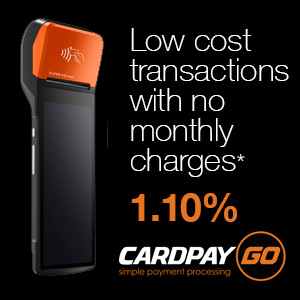How To Start An eCommerce Business
Similar to any other kind of company, figuring out how to start an eCommerce business can be difficult. There are multiple things to oversee.
You’ll see multiple commonalities between launching a traditional company and an eCommerce-focused one. These are some of the more obvious things, such as registering your business and complying with legalities.
Beyond that, many people don’t know how to start an eCommerce business. While plenty are launched every year, few of these succeed.
If you want to maximise your chances of success, you’ll need to take a few specific steps. Though you’ll need to spend a significant amount of time on them up front, it’ll be more than worth it.
How To Start An eCommerce Business That Will Succeed
Do Your Research
Launching any kind of business before doing your research isn’t a smart decision. You’ll need to be as informed as possible about the market you’re considering entering.
You should consider every part of the market when you do. That includes competitors, market size, and more.
With these, you can better position your brand for success long term. You should also research a few other notable things, such as expected costs.
The more information you have, the better you can plan your business. You shouldn’t overlook this step.
Choose A Platform & Set Up Your Website
One of the most obvious decisions you’ll have to make when starting an eCommerce platform is choosing which platform you’ll use. There are quite a few of these to choose from.
Each offers multiple pros and cons. That’s why proper research will be vital. You should see your platform – and the accompanying website – as your company’s storefront.
You should make sure that you use the right one for you. Some of the more notable options include:
- Shopify
- Woocommerce
- Squarespace
- Magento
It’s also worth using sales channels outside of your main platform. Social media, Amazon Renewed, and other options could be recommended for this.
Source & List Your Products
If you’re considering starting an eCommerce business, you’ve likely already thought about the products you’re going to sell. You’ll need to source or develop these.
If you’re selling products you’ve created yourself, you’ll need to manage the manufacturing and logistics of the process. You’ll also need to oversee the delivery of the products to the customers.
If you’re selling third-party products, then you’ll still need to source them. Logistics and manufacturing could be difficult, depending on who you’re partnering with.
Typically, however, you can expect many platforms to offer this as part of their service. Though there’s still work to do, it’ll be lower compared to managing everything yourself.
With that, it’s time to start listing your products on your ecommerce site.
Start Marketing
Once you’ve taken care of the above – alongside any necessary legalities – you’re set to start selling on your website. That doesn’t mean customers will simply flock in, however.
You’ll need to start advertising. Doing so will develop your brand visibility while attracting customers. In turn, that’ll lead to your sales increasing.
You can choose from multiple marketing strategies, many of which can be recommended for eCommerce. Some of the more notable options are search engine optimization, social media marketing, and email marketing.
These will take a significant investment in the beginning, though the return on investment should be worth it.
Top Tips For Starting An eCommerce Company
If you don’t know how to start an eCommerce business, it’ll seem overwhelming. Even with all of the above, you could still feel somewhat anxious.
Moving ahead with your plan will still be a priority, however. In that case, taking advantage of as many tips and tricks could be recommended.
More than a few stand out, including:
- Start Simple: When many people envision starting an eCommerce business, they typically think of the end result. They’ll be selling multiple products to countless people. It’s what other eCommerce retailers are doing. You should start simple, however. Keeping things manageable and scaling up when you can will ensure that any mistakes and risks are minimal.
- Have Multiple Channels: When it comes to your sales and marketing, you should use several channels. If you only have one sales channel – your website, for example – then you’ll be hard to find. The more channels you use, the more visible you’ll be, which leads to more sales. You should take the time to research which platforms are best for you and your customers.
- Learn From Competitors: Your competitors can be a wealth of information for your business, whether they know it or not. Researching what they’re doing and what’s working well can lead to you implementing similar measures. While you shouldn’t copy them outright, you can use them as a source of inspiration.
Using as many tips and tricks when you’re starting your eCommerce business is recommended. They’ll make the process much easier, especially in the beginning.
As you continue to manage your eCommerce company, you’ll gain more and more insights into it. You could even come up with a few tips and tricks of your own.
The more you do it, the easier it’ll become. While it might seem like an overwhelming process, it should be more straightforward than you’d think.
How Much Will It Cost?
Part of knowing how to start an eCommerce business involves knowing how much it will cost. While that varies from company to company, there are some general expenses that you’ll have to be aware of.
The typical costs of starting an eCommerce business include:
- Licenses & Permits: These affect all businesses, although the cost isn’t too high. They’ll need to be done, however.
- eCommerce Platform: Your eCommerce platform is the most important part of your business. There are plenty of affordable options for this, although more expensive options offer more features.
- Domain Name & Hosting: These are needed to set up any website and have either a monthly or yearly cost. How much this will be depends on which provider you choose.
- Payment Processing: To accept any online payments, you need a payment processor. You shouldn’t need to pay an upfront cost with these. Instead, they’ll typically take a portion of each sale.
- Inventory and Shipping: Whether you need inventory and shipping – alongside how much it’ll cost – varies drastically from firm to firm. It’ll be a relatively large recurring expense, however. It’ll also depend heavily on the sales you make every month, among other things.
- Marketing and Advertising: When you first start your eCommerce store, you’ll need to advertise it. The costs associated with this are flexible, but it’s recommended that you put some notable funds into this. The return on investment you’ll see should be more than worth it.
Coupled with that are multiple other obvious costs, such as taxes. You’ll also need to consider equipment, although this depends on your type of business.
Putting together a budget for an eCommerce business can be complicated and time-intensive. Once you’ve done it, however, you can plan things out much better.
With that, you have a much better chance of successfully growing your online store.
How To Start An eCommerce Business: Wrapping Up
Figuring out how to start an eCommerce business can often seem overwhelming. While it can be complicated, it’s far from impossible.
Focusing on a few things at the beginning can help make things go as smoothly as possible. Alongside the above, you should ensure that your company is legally registered and structured properly.
With that, you shouldn’t have a problem starting and running a successful eCommerce company.




